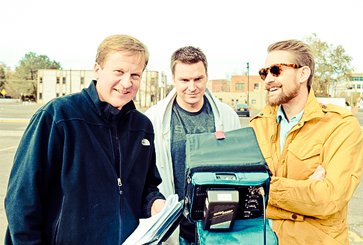Insights
Research is not a media strategy.
For media people, few things inspire both love and hate as much as research.
By nature, we are numbers freaks. We love the comfort of turning off the
world, engaging our iPods and digging into the gritty research analysis.
It’s like heaven.
But research is not always roses and chocolate. Consider Arbitron’s outdated system of measuring radio listening. Have you ever seen the completed diaries people keep? It’s no wonder the results sometimes seem inconsistent. Or it could be the “sample size not reliable” message that is returned when you get too aggressive with your inquiry – such as trying to better understand a Harley owner by asking for his preferred brand of watch or cologne. The problem with looking for answers in research is that most of the time the answer just doesn’t “feel” right.
So each day we arrive at a fork in our planning path: Do we rely solely on research, be it good or bad? Do we simply choose the path that can be supported by data? This is the most common choice for many. And, if the path is questioned, they have the standard answer waiting in their hip pocket, “but the data can’t get that specific” or “it’s not proven.”
A solid media planner will consider the research, absorb it, but never look to find the answers in it. Real success (and a little risk) comes when we step out of our data-centric comfort zone. Rather than fall back on what is defined, why not call up an informed gut instinct based on our experience and knowledge, rather than lean on flawed or retro-fitted numbers. Real strategy comes from the gut, not from spreadsheets.
All great planners feel the pull of the data and then take it to the next level, sometimes living outside the comfort zone. It frees us to be creative and it always leads to smarter campaigns for our clients. (Not to mention, it’s way more challenging and fun.)
In the end, successful communications don’t evolve from Scarborough runs or focus groups; they result from a natural curiosity, a tolerance for ambiguity, the courage to take a calculated risk. So, appreciate the guidance and insight that can sometimes be found in research. And then walk away and trust yourself to create the answers.




